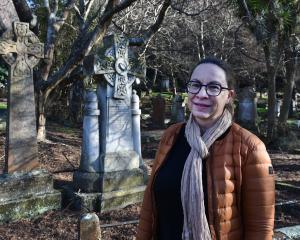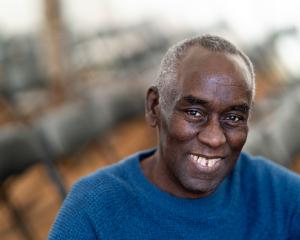SINS OF THE FATHER
The Long Shadow of a Religious Cult
Fleur Beale
Longacre, $29.99, pbk
Neville Cooper began his "career" as a fiery and energetic travelling preacher. Travelling is an important word here, as he, along with several of the other members of his family, spent a good deal of time on the move, first in Australia and then in New Zealand.
There's a terrible sense of unsettledness throughout this story.
Cooper was continually forced to move on because he seldom agreed for long with the churches that he attached himself and his ever-increasing family to. Eventually, he became a denomination unto himself, the rules growing as fast as the number of his children.
And finally, he stopped moving and began the Springbank Christian Community near Christchurch. The community became known colloquially as the "Cooperites".
The community had (and still has) its positive side: strong work ethics, and a traditional attitude towards marriage, for example.
But, as so often happens with communities that have a charismatic and controlling leader, sexual abuse of young people (under the pretence of "openness about sex") soon became a feature. Furthermore, those who didn't agree with the rules were subjected to virtual interrogations and either conformed or were cast out and treated as "dead".
Soon the outside world began to regard the Cooperites as a cult - with some justification.
Neville Cooper dominates the background of this story, but its main focus is his son, Phil, and his young family.
Phil was strong-minded like his father, extremely entrepreneurial, and a constant challenge to the wrongness of certain aspects of the community.
Most of Sins of the Father is taken up with his attempts to escape his father's dominance.
Once he'd left the community for good he set about trying to rescue the family he'd had to leave behind, to give them freedom. Kidnappings and abductions were regular features of their life, and the surprising thing is that they all survived the experiences.
The saddest part of the book is the way in which Sandy, Phil's wife, is never able to release herself entirely from the "teaching" of her father-in-law.
She constantly heads back to the community, almost in spite of herself.
The best thing about the story, apart from the fact that the family survived not only as people, but as Christians, is that time and again Christians both in the "world" and "out" of it (the Hutterites in North America, for example) offered genuine help and salvation to this scarred group of people.
Beale, who has mostly written novels for young adults until now, admirably uses a no-frills writing style to bring cohesion to a confusing series of lives.
- Mike Crowl is a Dunedin writer.











